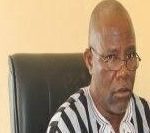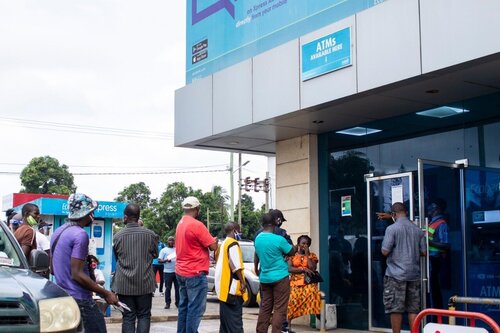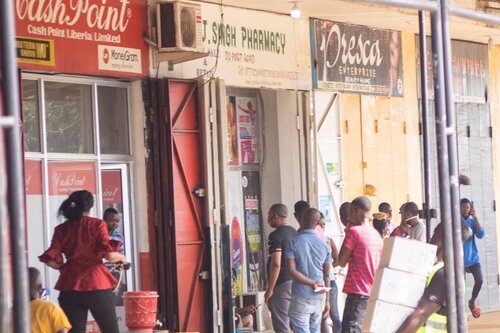
A conversation with Hon. Robert K. Fagans, Sr., Deputy Minister for Agriculture
January 9, 2024
COVID-19 Business Advisory Series: Managing Finance and Cash Flow in a Difficult Time
January 9, 2024Shortcomings in Liberia’s financial system challenge basic business operations and inhibit growth. The COVID-19 crisis is likely to exacerbate these long-standing problems.
Financial liquidity, in the simplest possible terms, is about markets,companies or financial institutions having sufficient cash to settle their financial obligations – this includes access to capital as well as banknotes.
Liquidity and banknote shortages in Liberia prevent the banking system, its business customers and their respective clients from operating and growing efficiently. Adequate liquidity is especially important now as Liberia addresses an economic downturn caused by COVID-19. During this time, businesses are likely to require additional credit support while individuals will seek access to their cash savings to manage hard times.
Liberia’s banking system has experienced long-standing liquidity challenges, affecting both the USD and Liberian Dollar (LRD). But the problem has been particularly pronounced since early 2019.
The following provide a look at how capital and banknote shortages challenge Liberia’s businesses.
Ready access to cash from the bank is vital for businesses in a predominantly cash-based economy. At best, shortages reduce business efficiency and at worst halt commercial activities altogether.
A Monrovia-based business owner, who wished to remain anonymous, describes how difficulties in withdrawing cash from the bank frequently cause delays to his company’s supply chain operations.
He recounts how even with good contacts at the bank – and slipping tips to the cashier for withdrawals of more than $4,000 – it is customary to wait for up to four hours to receive cash, with withdrawals seemingly conditional on other customers making deposits.
“This delays everything,” he says. “I need cash on a daily basis to pay for goods and it can waste the whole day.”
Seventy percent of the time, he estimates, cash is disbursed in small denomination bills. This is unhelpful for large transactions, while many of the businesses he deals with are unregistered small traders without bank accounts. Even those with accounts prefer cash payments over cheque or bank transfer: “They tell me it’s so painful in the banks and they don’t want to waste the whole day there.”
While it has become commonplace since 2018 to intermittently see long queues outside banks in Monrovia, the problem is even more pronounced in rural areas, where poor road conditions present logistical challenges to delivering cash to remote branches.
For example, in December 2019, the US government scaled down its Peace Corps programme in Liberia and withdrew volunteers from all but the three counties most accessible to Monrovia, citing difficulties in withdrawing funds from banks.
Cocoa cooperatives in Lofa and Nimba have been unable to fulfil their buying potential due to difficulties in accessing cash from banks.
Rural enterprises are also being impacted. Fofie Nyeh, the business manager of Sebehill Cooperative, which purchases coffee and cocoa from farmers in Lofa County and sells it on to an exporter, describes how it has become necessary to travel to Monrovia to pick up cash from the buyer, or else meet halfway along the road.
The one remaining bank in Lofa closed in February, but even while it was open customers experienced difficulties in accessing cash. Sebehill’s management preferred to make the 20-hour round trip to Monrovia, despite this method significantly slowing the operations of a cash-intensive business.
The story is even worse for Kawakerseh Cooperative in Nimba County. Business Manager Zawolo Konah recounts how the cooperative signed a contract with a buyer in Monrovia last year and received pre-financing of LRD 1 million (US$5,000) into a bank account to purchase cocoa from farmers.
“When we went to withdraw the funds from the bank in Ganta, they said we could only take LRD 20,000 (US$100),” Konah recalls.
This inability to withdraw cash severely hampered the cooperative’s capacity to purchase from farmers, at a time when multiple buyers are competing within a small timeframe and farmers sell to those who can pay upfront. As a result, Kawakerseh only purchased 2.7 tonnes of cocoa in 2019, down from more than 15 tonnes in the 2014/15 season.
“Since we couldn’t do business, we sent the money back [to the buyer],” says Konah. “It really frustrated us.”
A probable decline in export earnings related to COVID-19 will exacerbate the liquidity problem, while higher rates of withdrawal are likely to squeeze cash availability.
Liberia’s USD liquidity problem is likely to be worsened by COVID-19 as export earnings and remittances from abroad, which bring foreign exchange into the country, are set to reduce. Iron ore producer ArcelorMittal has initiated a two-week lockdown at one of its sites in response to a handful of coronavirus cases among its employees; a full shutdown would have serious consequences for government revenues. Export earnings are also likely to dip due to decreasing global demand for key export commodities such as rubber and palm oil. In May, Golden Veroleum Liberia, the largest oil palm concession-holder, laid off over 10% of its workforce due to falling global prices.
On a domestic level, there are also concerns about a potential rush of people attempting to withdraw money from their bank accounts amid COVID-19-related uncertainty, at levels that could not have been anticipated three months ago. Given the pre-existing difficulties of withdrawing funds, citizens are likely to want to build cash reserves that can be easily accessed in an emergency.
“The people withdrawing are our individual customers who need to sustain their families as their businesses are underperforming,” observes Jonas Nyaye, CEO of Access Bank.
Access Bank caters primarily to small business customers. Nyaye has observed a general slowdown in lending to this group by banks: “SMEs are unable to get loans and overdrafts have not been renewed because banks don’t have liquidity to lend.”
The government’s ability to respond is limited, but refraining from unsustainable borrowing from the CBL will help.
Liberia has entered the pandemic in a weak economic position, and the Central Bank of Liberia (CBL) has limited capacity to respond to liquidity shortages; reserves stand at US$50 million – “an all-time low,” according to Babah Conteh, the director for macroeconomic policy management at the Ministry of Finance and Development Planning. Since the government cannot print USD banknotes its intervention abilities are limited, although in December 2019 US$58 million-worth of banknotes were brought into the country to address commercial banks’ cash challenges.
One form of assistance would be to make commercial banks’ reserves at the CBL more readily available to them. A senior executive at a commercial bank, who spoke on condition of anonymity, describes how banks have been struggling to withdraw their deposits from CBL vaults in the past year.
“At the height of the problem, it took weeks to cash even $100,000,” the source recalls. “If you looked at the balance sheet of the banks, they were liquid, but they could not withdraw.
“Now we keep excess cash in our central branch,” the source continues. “We don’t keep it at CBL, because if they have liquidity problems it affects the commercial banks.”
Last May, President Weah announced that “the Government of Liberia, under my leadership, will no longer borrow from the Central Bank of Liberia for its short-term liquidity needs.”
Since then, the government has indeed ceased borrowing from the CBL, and refraining from doing so is a requirement to accessing financial support under the IMF Extended Credit Facility.
Conteh also describes how the government’s debt service obligations to commercial banks are being deferred, placing strain on the system. However, a plan to transfer government debt from resident to non-resident banks is intended to improve liquidity.
Digital payment systems and mobile money are being promoted as a solution, but these are not a quick fix to overcoming liquidity shortages.
The CBL is trying to encourage uptake of digital payment systems, including more reliable and convenient mobile money services, to reduce the demand for physical cash. These efforts are complemented by a directive issued in March suspending electronic payment and mobile money transfer charges as part of measures to ease the economic impact of COVID-19.
“If sufficient progress is made on the digital finance front, the perennial cash shortage issues can be addressed,” says Jay Brown, head of the financial sector development unit at the CBL, adding that mobile money companies have been permitted to integrate mobile money accounts with bank accounts.
“We can’t completely digitise, as the very low end will still need cash,” he continues.
But in order for mid- to high-value customers to gain trust in digital systems, and particularly mobile money services, cash will need to be readily available when it is requested. And the challenges faced by brick-and-mortar banks in this respect are no different for mobile agents.
The existing shortcomings challenge the outlook for business banking services in the context of COVID-19.
Until these shortcomings are addressed, business operations will continue to be hampered by physical cash shortages, while the economic consequences of the COVID-19 pandemic are likely to lengthen the pathway to a sustainable solution. The trading downturn is likely to be compounded by capital shortfalls as business operations, such as cocoa traders, are unable to access the funds they need to purchase produce for export that would in turn bring much needed foreign exchange into the country.
About GROW Liberia
GROW is an agri-business and investment advisory program that partners with businesses, investors, associations, and government agencies to accelerate inclusive economic returns within high growth industries in Liberia. GROW is supporting public and private partners and markets to respond to the COVID-19 emergency. Learn more about our research, advisory, and support here.
Liberia operates with both USD and LRD currencies.
USD liquidity is conditional on a healthy current account balance and corresponding foreign cash reserves. In other words, national export earnings must exceed the quantity of foreign currency required to cover import needs. Liberia’s primary exports are rubber, iron ore and gold. The country is heavily reliant on multiple imports – not least among them rice, the staple food. The dependence on raw commodity export earnings means that the economy is highly vulnerable to external shocks.
The Central Bank of Liberia (CBL) has greater control over LRD liquidity. It can manage the quantity of Liberian dollars in circulation, including by printing currency and changing commercial bank reserve requirements.
For more information on Liberia’s dual currency regime and monetary policy, click here.



